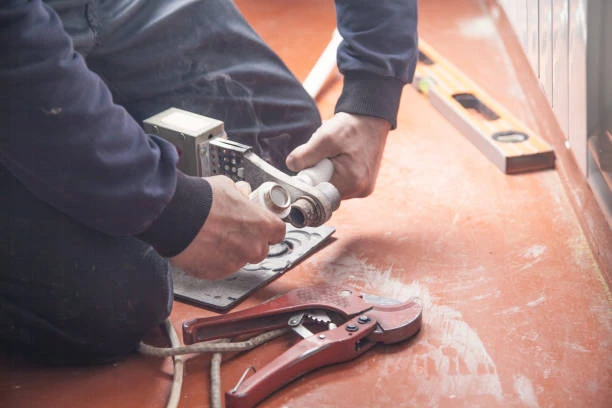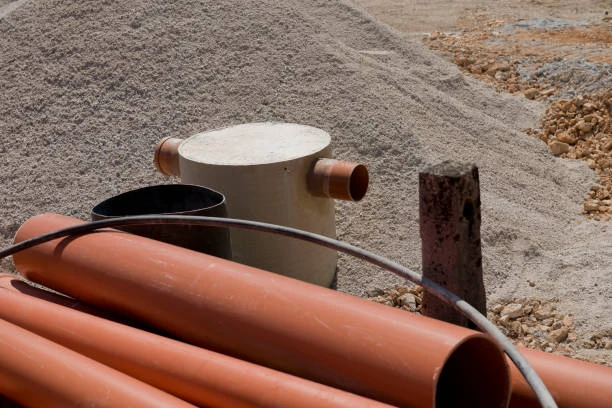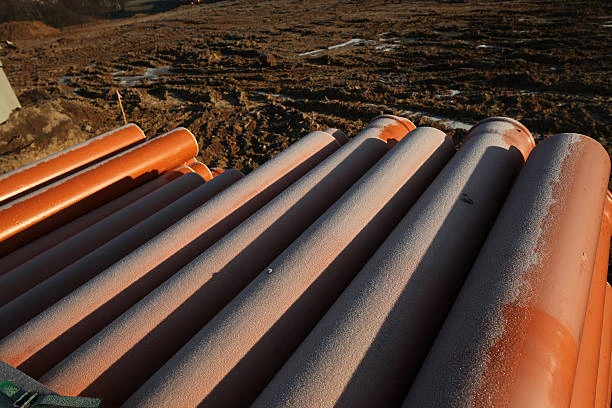When dealing with high-temperature and pressurized fluid systems, choosing the right piping material is essential. (Polypropylene Homopolymer) PPH pipe fittings have emerged as a reliable solution in industries requiring resilience, strength, and durability against heat and pressure. Known for their impressive ability to withstand extreme conditions, PPH pipe fittings are increasingly being used in a range of industrial applications, from chemical processing plants to high-temperature water systems.
What Are PPH Pipe Fittings?
PPH pipe fittings are specialized components made from polypropylene homopolymer, a type of plastic that is particularly durable and heat-resistant. This material is distinguished from other types of plastic, like PVC or CPVC, by its higher thermal resistance and its stability under pressurized conditions. PPH pipe fitting provide secure, reliable connections that are essential in maintaining fluid integrity in various demanding environments.
Advantages of PPH Pipe Fittings
- High Temperature Resistance: PPH can handle temperatures up to 180°F (82°C), making it ideal for high-temperature applications.
- Corrosion and Chemical Resistance: PPH is highly resistant to a variety of chemicals, acids, and salts, ensuring longevity in corrosive environments.
- Lightweight and Easy Installation: Despite its strength, PPH is lightweight and easy to handle, reducing installation time and effort.
Main Uses of PPH Pipe Fittings in Industry
In industrial settings, PPH pipe fittings are particularly valued for their reliability under harsh conditions. Key applications include:
- Chemical Processing Plants: Ideal for transporting corrosive chemicals safely.
- Industrial Cooling Systems: Excellent for cooling systems that require high-temperature stability.
- High-Pressure Water Systems: Frequently used in pressurized water systems due to their resilience.
How PPH Pipe Fittings Perform Under Pressure
One of the standout qualities of PPH pipe fitting is their ability to handle significant pressure without deformation or leakage. Unlike PVC, which may fail under extreme pressure, PPH remains resilient, making it suitable for high-stakes industrial applications where pressure levels are consistently high.
Temperature Capabilities of PPH Pipe Fittings
PPH is one of the few thermoplastics capable of withstanding high temperatures, with a maximum operational range of around 180°F (82°C). This characteristic is crucial in applications such as steam transport or in environments where temperatures frequently exceed normal levels.
Chemical Resistance in PPH Pipe Fittings
PPH pipe fittings are chemically inert, which means they do not react with a wide array of chemicals, making them invaluable in industries dealing with acids, caustic solutions, and solvents. Their use in chemical transport and storage systems minimizes the risk of contamination or degradation due to chemical reactions.
Installation and Maintenance of PPH Pipe Fittings
The installation of PPH pipe fitting is generally straightforward, involving techniques like socket fusion or butt welding, which ensure secure, leak-proof joints. Additionally, PPH’s durability means that maintenance is minimal, resulting in lower long-term costs and fewer interruptions in industrial processes.
Environmental Benefits of PPH Pipe Fitting
PPH is recyclable and contributes to sustainability efforts within the industry. The energy efficiency in its production, combined with the reduced need for maintenance and replacement, makes PPH an environmentally friendly choice compared to many other piping materials.
PPH Pipe Fitting vs. PVC and CPVC Pipe Fittings
While PVC and CPVC are more common in household plumbing, PPH’s superior temperature and pressure resistance make it more suitable for industrial applications. Although it may come at a slightly higher cost, the durability and reduced risk of failure often offset this initial investment, especially in high-demand environments.
Challenges and Limitations of PPH Pipe Fitting
While PPH offers a range of benefits, it is not without limitations. For instance, in certain extreme environments, such as highly pressurized systems exceeding standard limits, PPH may experience weaknesses. Additionally, exposure to UV light over extended periods can cause degradation, so protective measures are necessary in outdoor installations.
Why PPH Is Ideal for High-Temperature Applications
PPH’s unique molecular structure allows it to remain stable under high temperatures, making it ideal for processes involving steam, hot water, or other heated fluids. This characteristic makes PPH pipe fitting invaluable in industries where temperature control is critical to operations.

Popular Applications of PPH Pipe Fitting
Industries that rely on PPH pipe fitting include:
- Chemical Manufacturing: Safe handling and transportation of reactive substances.
- Pharmaceutical Production: Ensures purity and safety in chemical transfers.
- Food Processing: Used in temperature-controlled environments for food safety.
Future of PPH Pipe Fitting in the Market
As industries continue to evolve, the demand for PPH pipe fitting is expected to grow. Innovations in material science may further enhance their resilience and environmental benefits, making PPH fittings an increasingly popular choice for future infrastructure.
Conclusion
PPH pipe fittings are revolutionizing industries that demand high-temperature and high-pressure tolerance. Their advantages make them indispensable for applications where stability, durability, and chemical resistance are paramount. With ongoing developments in PPH technology, these fittings are set to become even more integral to modern industrial plumbing solutions.
FAQs
- What are PPH pipe fitting primarily used for?
PPH pipe fittings are commonly used in industries requiring high-temperature and chemical-resistant solutions, such as chemical processing and industrial cooling. - Can PPH pipe fitting handle high pressure?
Yes, PPH pipe fittings are known for their resilience under pressure, making them suitable for high-pressure applications. - What temperatures can PPH pipe fitting withstand?
They can typically withstand temperatures up to 180°F (82°C), which makes them ideal for high-temperature applications. - How do PPH pipe fitting compare to PVC?
PPH fittings have superior temperature and chemical resistance compared to PVC, though they may come at a higher cost. - Are PPH pipe fitting environmentally friendly?
Yes, PPH is recyclable, and its durability reduces the need for replacements, making it an environmentally friendly choice.


















